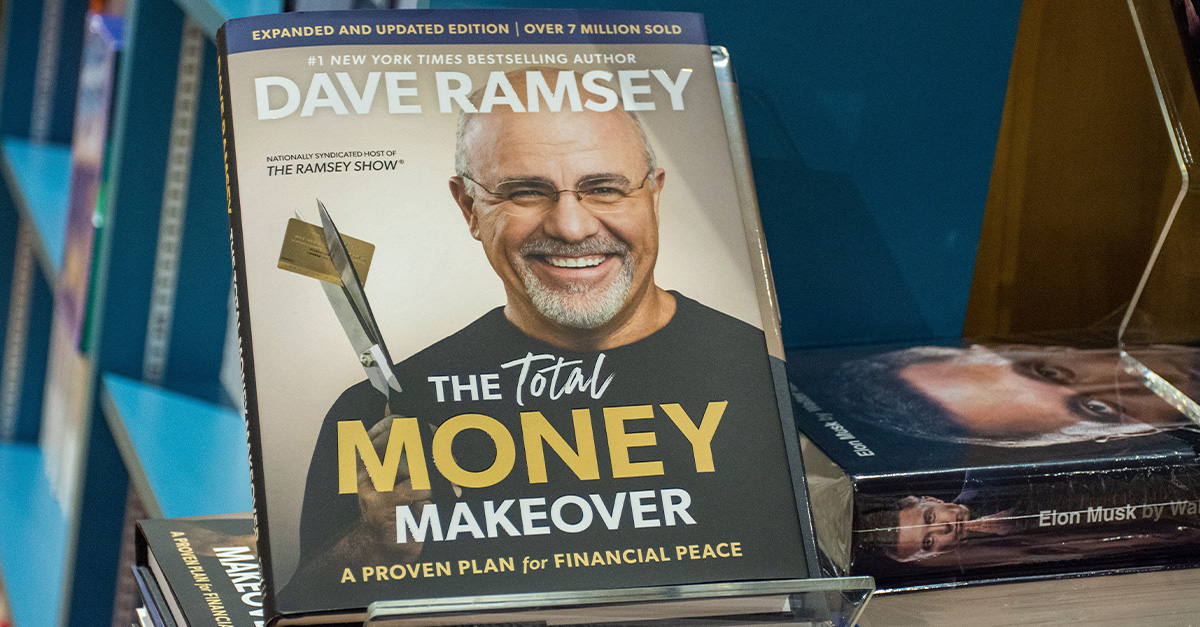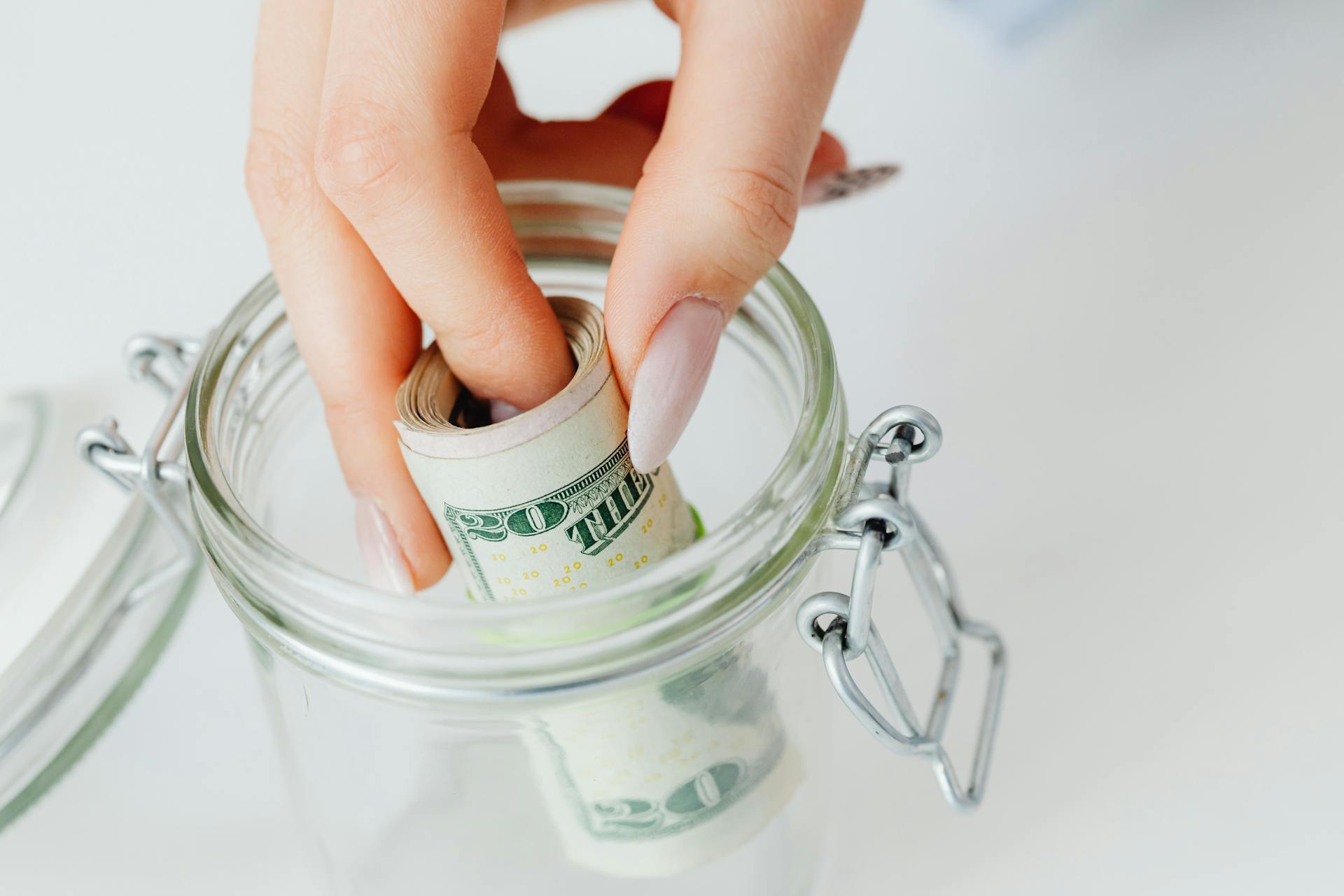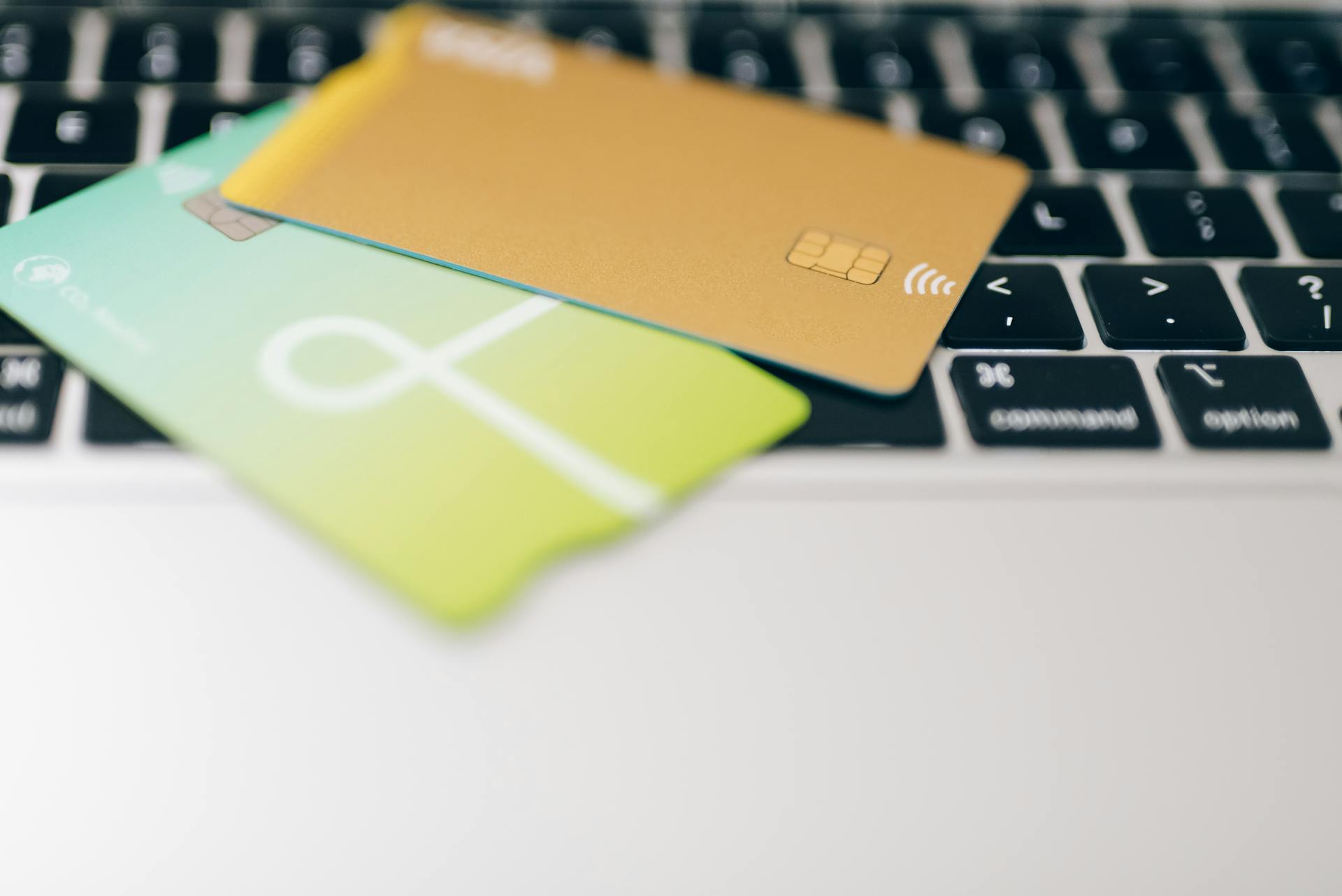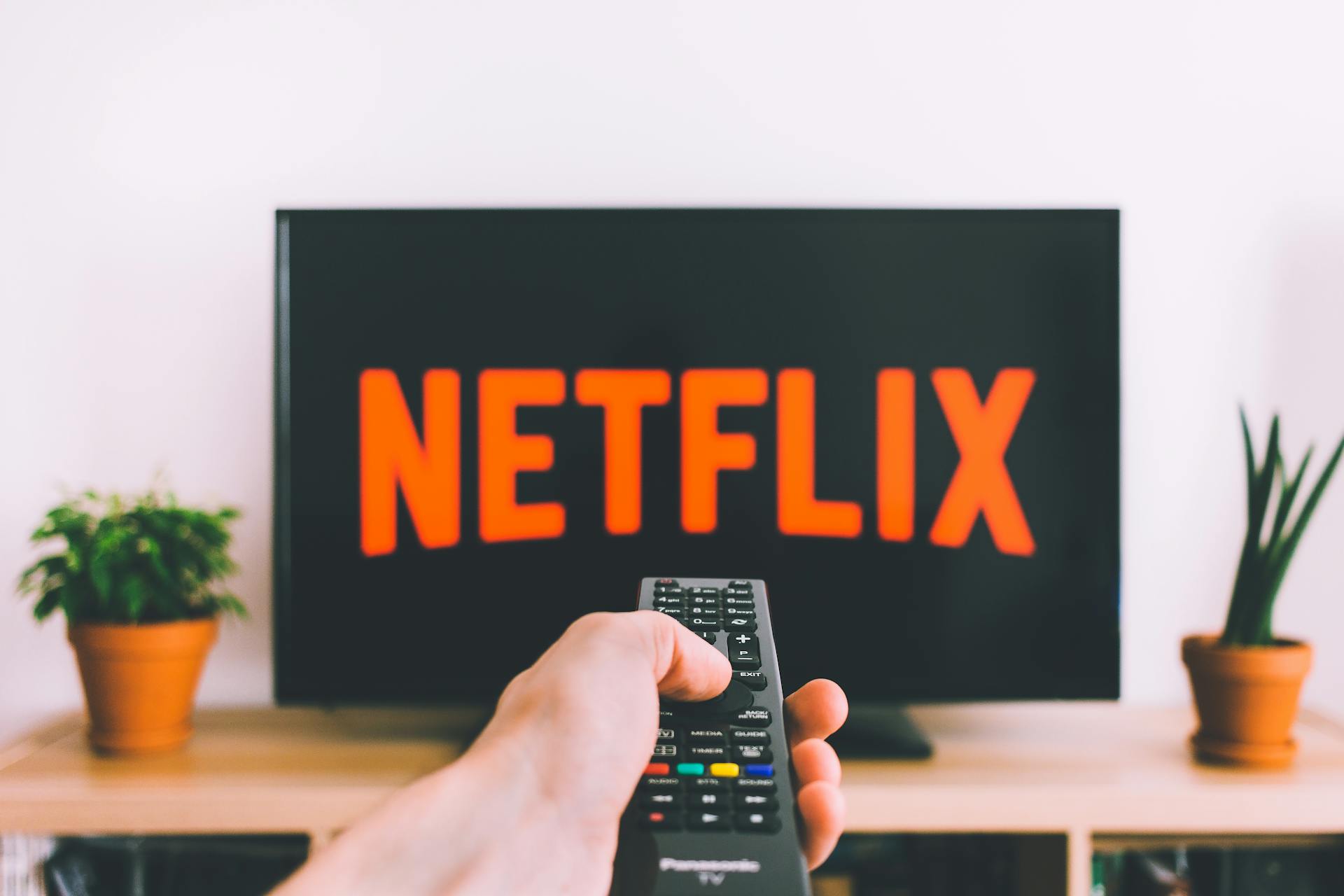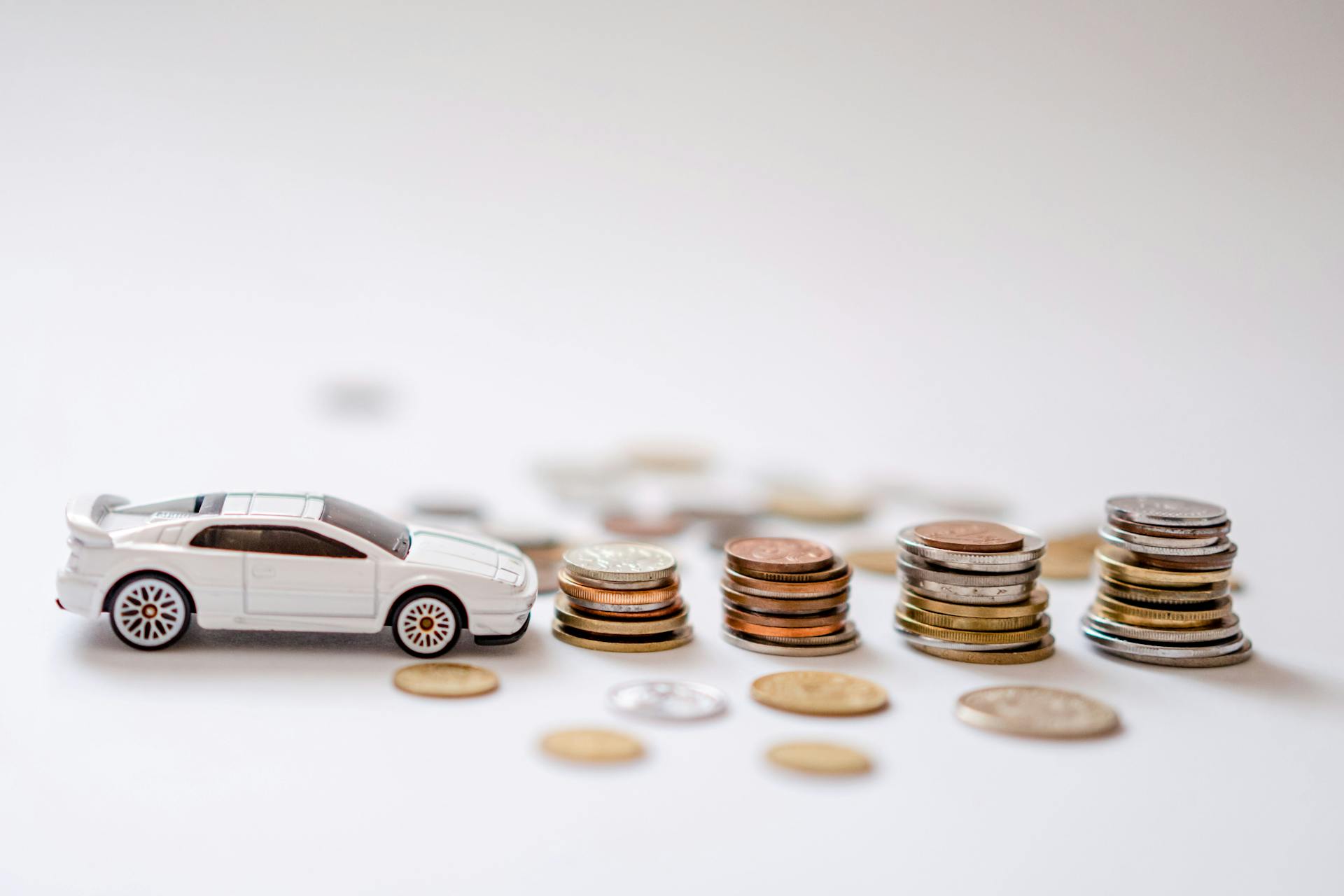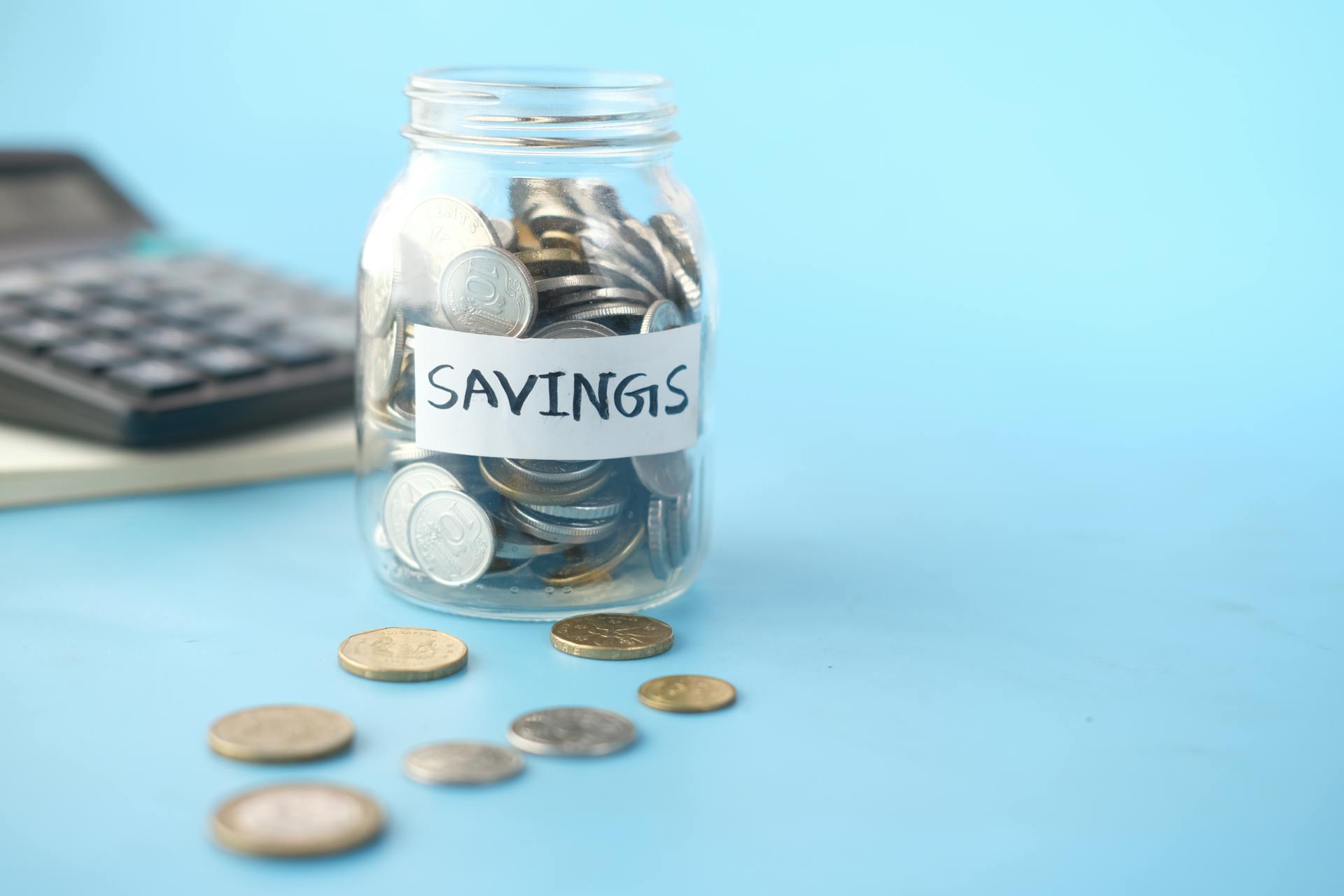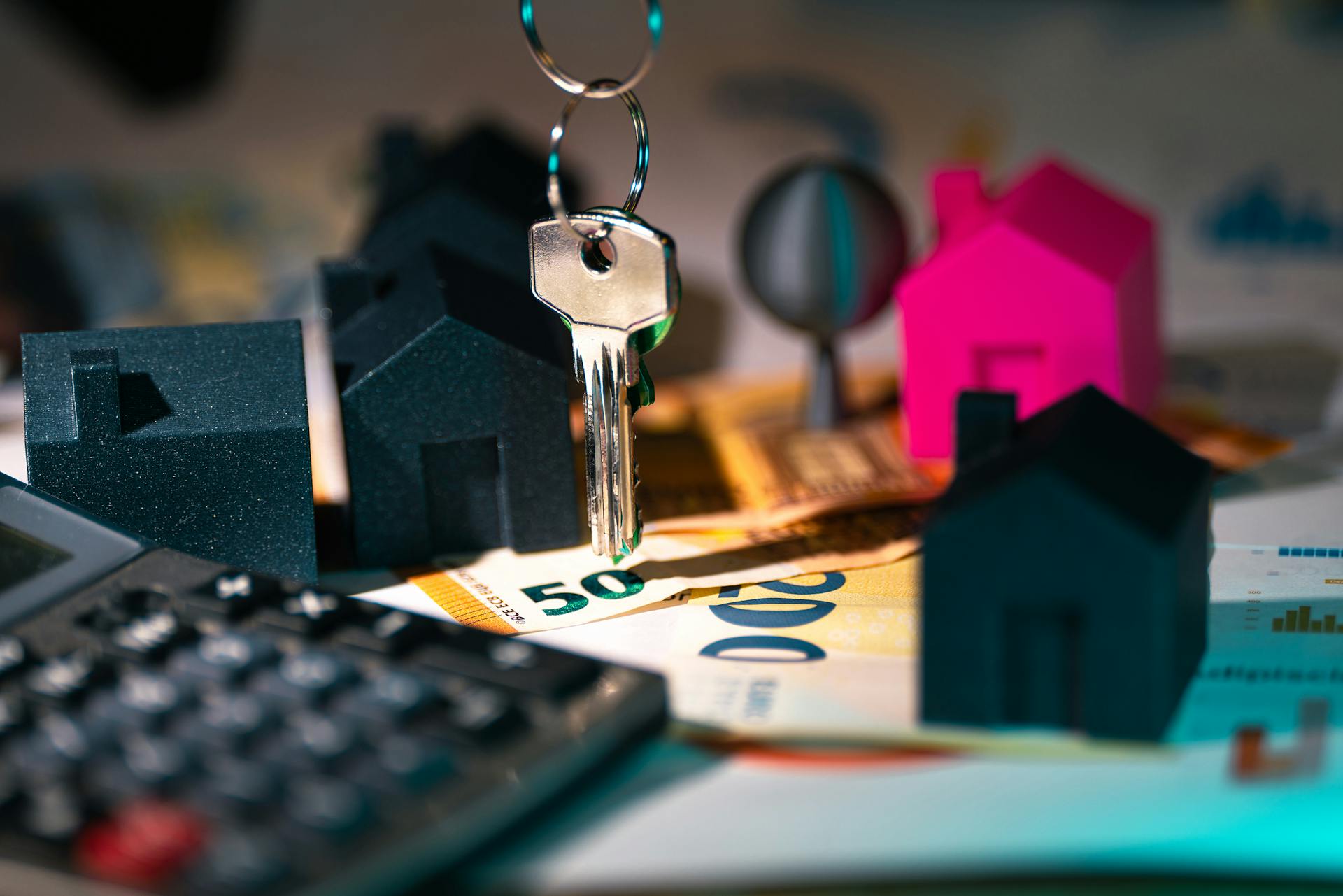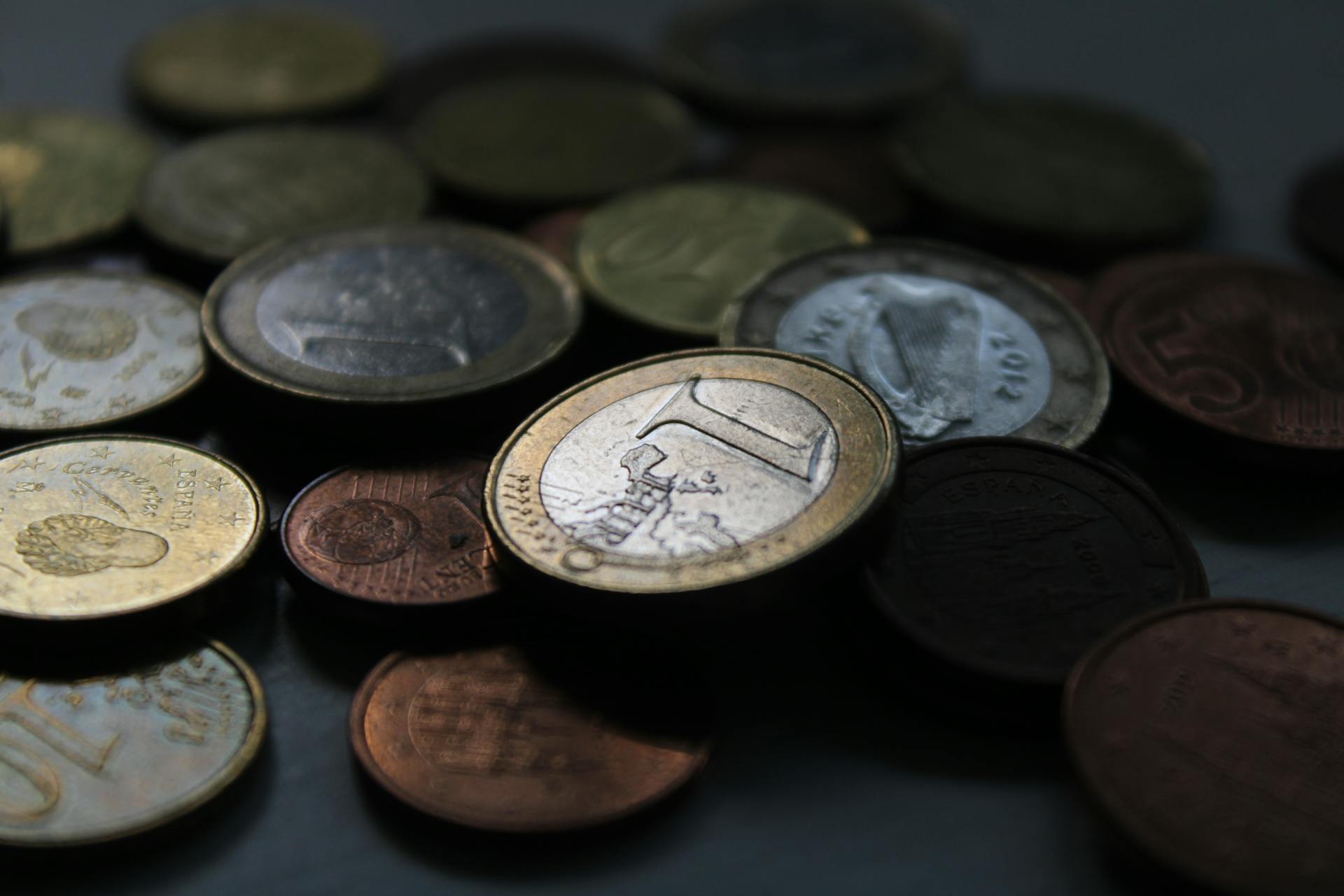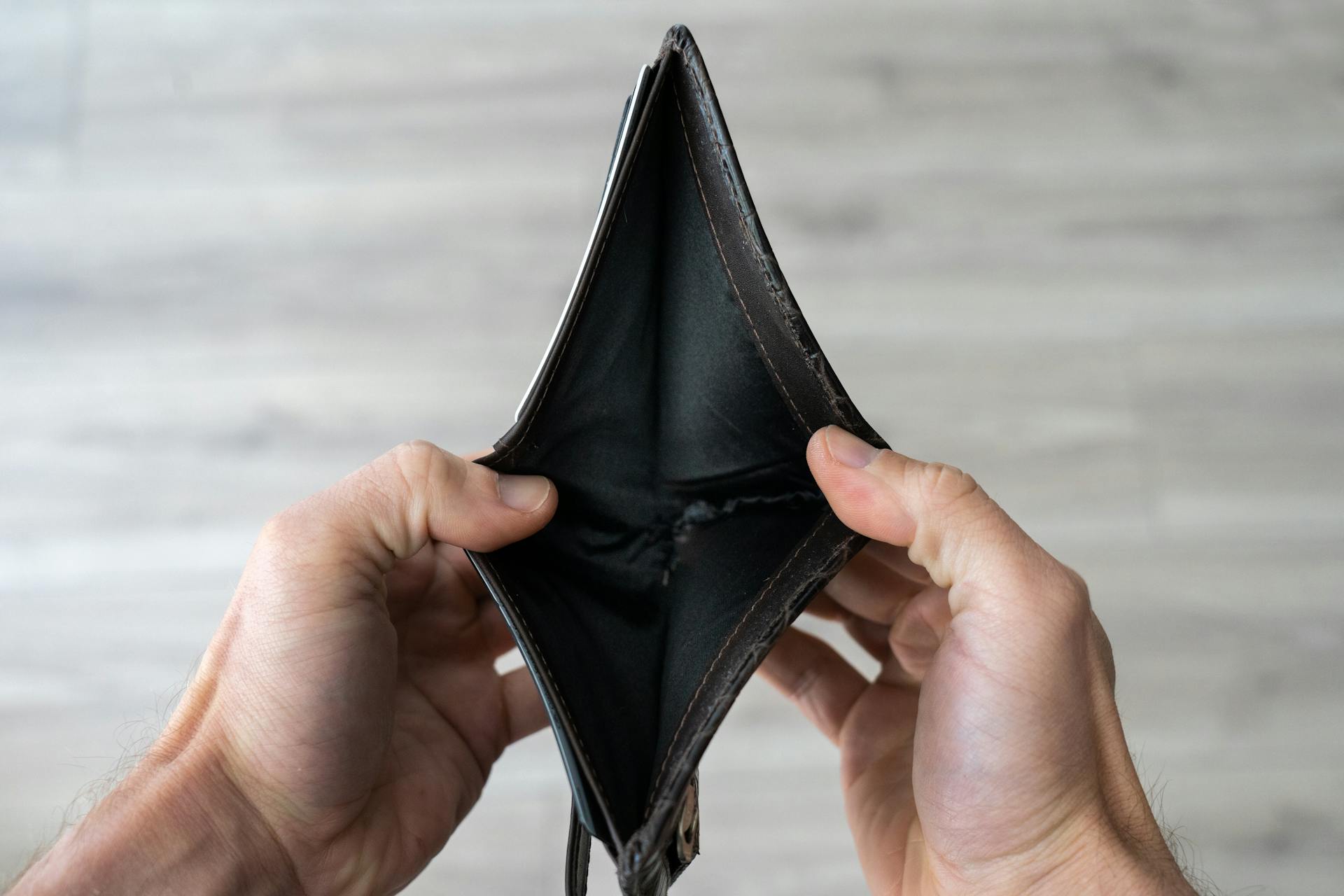Finance Guru Dave Ramsey's Best Money Advice
Finance podcaster and guru Dave Ramsey went from a millionaire to broke in his twenties, and then regained his financial status in his thirties. Find out how the host of The Ramsey Show on YouTube and national radio got back to his financial best and how it could work for you by adopting some of Dave Ramsey's best financial advice.
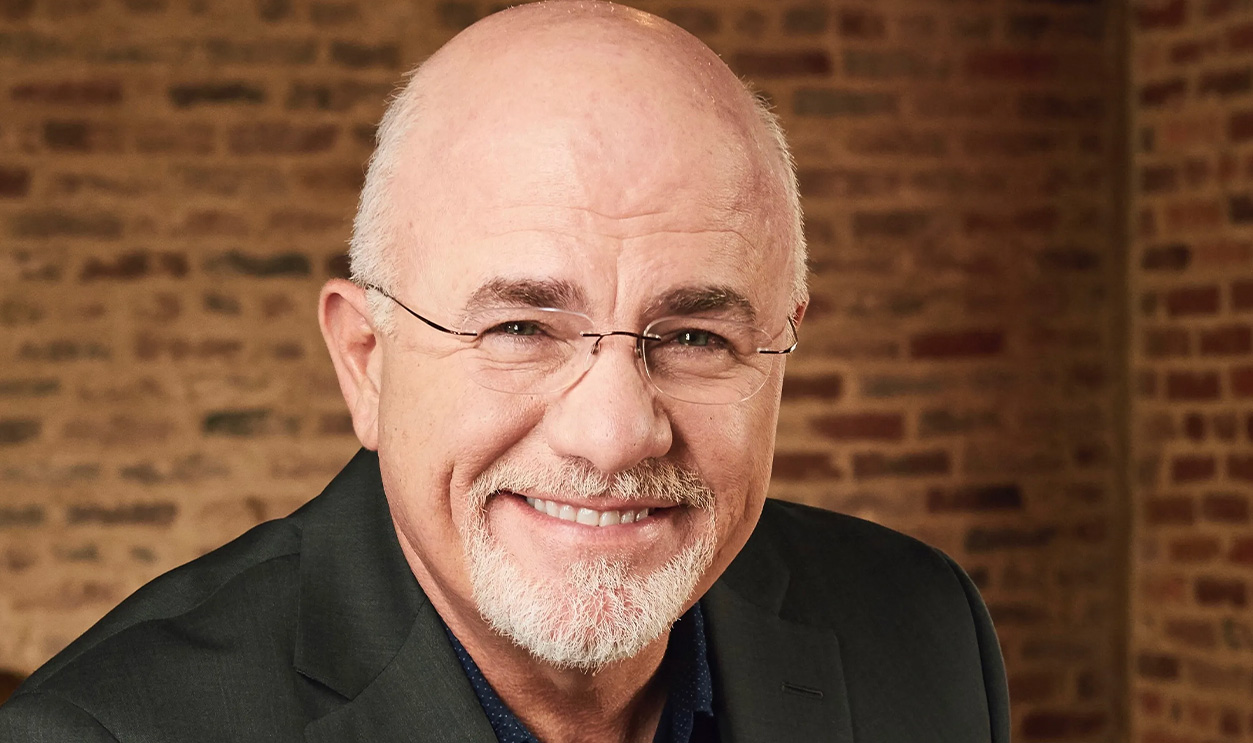
Gaining Control Of Your Money
Sometimes, it can feel like our money is circling the drain—it's just going, going, gone and we don't know where it went. One of Ramsey's first tips is to gain control of your money by making a financial plan. This means sitting down and figuring out where you want your money to go and where it's going currently. Doing this gives you a much greater sense of control over your finances.
Set Yourself A Monthly Budget
Once you've gained control over your money by figuring out where you want it to go, the next step is to create a monthly budget. A month is generally short-term enough for most people to grasp, but long-term enough so that the figures aren't abstract. By giving yourself a monthly budget, you'll be able to make financial decisions within the right time frame.
Give Every Dollar A Name
This is a great piece of advice from Ramsey. By giving every dollar a name—whether it's groceries, utilities, car payments—you'll be able to see exactly where your money is going. This will enable you to make course corrections if necessary and funnel money into what you want to spend it on.
Begin An Emergency Fund
Almost nobody is prepared for life's emergencies, but you can be a little more prepared by starting an emergency fund. It doesn't need to have $5,000 in it, or even $2,000. Just $1,000 will do to start with. Save up $1,000 and put it into an emergency savings account—this way, it will grow with interest.
Utilize The Debt Snowball Method
Dave Ramsey created a debt management method known as the "Debt Snowball Method". This is a debt management method where Ramsey suggests paying down your debts by choosing the debt owed with the smallest balance. Once this is paid off, continue picking away at your debts by paying off those with the smallest balances until you've paid off the largest debt balance you owe.
Get A Side Hustle
Side hustles are an excellent way to bolster your cash flow without taking away any hours from your full-time job. Of course, this will depend on your personal circumstances, but even making an extra $20 or $40 a week mowing a lawn or two on a Sunday, or shoveling snow during snowstorms, can make a difference to your finances.
No Investments Until You Have Zero Debt
While paying off small debts using the snowball method can leave you feeling like you have more money in your pocket, Ramsey strongly advises against investing that money into anything until you have no remaining debts. Instead, pour your leftover money into your monthly budget or pay off your debts faster!
Stop Using Credit Cards
While credit cards can seem like an attractive option to pay for things, Dave Ramsey's advice is to stop using them entirely. Sure, they come with high rewards and other perks, but the cost of missing a payment can mean putting yourself into a bottomless pit of credit card debt that's almost impossible to climb out of.
Begin Saving A Fully-Funded Emergency Fund
While $1,000 is a great start, it is certainly true that it won't get you very far if a major emergency pops up, like a job loss or other massive expense that drains your savings. So, once you've paid off your debt, Ramsey suggests starting a "fully-funded emergency fund" of around three to six months' worth of expenses. These expenses are based on your earlier-created monthly budget. You can separate this into a different bank account than your $1,000 emergency fund.
Look At Your Discretionary Expenses
Take a good look at where your extra money goes every month. Are you subscribed to three or four different streaming services that you only really watch one of? Maybe try unsubscribing from any that you don't use regularly and saving that extra money. Determine which non-essentials you can eliminate and then go forth and purge.
Shop For Your Groceries Using A List
Nobody goes to the grocery store with a paper (or digital) list anymore, right? Well, Dave Ramsey recommends doing just that. Not only will creating a list help you to not forget anything you might need—it will also ensure that you don't impulse-buy and spend more than your allotted grocery budget on frivolous items.
Buy Generic Items Over Brand Names
When at the grocery store, there are generally two options: brand-name goods and generic brands. The latter is generally cheaper and comparable in terms of quality. Obviously, there are certain things you shouldn't skimp on, or no budget-friendly alternative is offered, but it's a good idea to buy generic items over the same product with a more expensive brand-name on it.
Meal Plan
This may sound simple, but how often have you gone out for a meal because you didn't have anything planned to cook? How much was that meal—$30 or $40, right? You could probably have cooked five to seven meals for that amount of money, if you'd have planned it out ahead of time. Meal planning is essential to budgeting for groceries, and will help your food go much further.
Brew Your Own Coffee
Sure, it might not be as exotic as the coffee shop in town. But a 12-ounce cup of coffee brewed at home will cost you about 35 cents, whereas you can expect to pay around $4 for the same sized mug. Multiply that expense by each day and suddenly you're saving $90 a month by making your own coffee.
Avoid Buying Now & Paying Later
While most companies and retailers offer a "Buy Now, Pay Later" scheme of some sort, Ramsey advises against using these types of schemes—in a similar vein to credit cards, once you miss a payment, you're off to the financial-ruin races. Companies can charge huge interest rates and late fees. Avoid BNPL at all costs—if you don't have the money to pay for something immediately, don't buy it.
Don't Lease A Vehicle
While leasing a vehicle can seem like an attractive option, these are generally vehicles that are leased by individuals who can't afford to pay for the vehicle themselves. It's a look-rich-quick scheme that does little to benefit your overall financial picture. As Ramsey says, "You can't build wealth if you're going into debt to look rich".
Buy A Used Car
This is particularly true if you're just starting out your driving journey, but even if you're not, buying a used car is most definitely the most salient financial decision you could make about vehicles. Used cars are often cheaper and have much more life left in them, even if their mileage is high. According to a Ramsey study, eight out of 10 millionaires buy used cars.
Pay Cash For A Car
Handing over your hard-earned cash is difficult, but when it comes to a vehicle to get you from A to B, it's worth it. Paying cash for a car is always the best way to finance it. You won't need to worry about entering debt, and you can avoid taking out a car loan at the same time.
Set Aside 15% Of Your Income For Retirement
While 15% may seem like a tall order initially, this isn't a hard-and-fast rule. The point is to set aside a portion of every paycheck for your retirement. Or, if your employer does retirement savings plan matching, you can sign up for a bank account with that option. You can set up an automated process into a 401(k), a pre-tax IRA, or a Roth IRA.
Leave Your 401(k) Alone
You'll likely be watching your 401(k) grow and will be very tempted to take money out. Ramsey suggests you avoid this at all costs. Not only will dipping into your 401(k) mean you'll have less money overall come your retirement, but you'll also be taxed double on the withdrawal amount. Ouch.
Pay Off Your Mortgage
Your plan to be debt-free must also include your mortgage. Sure, you may think of your mortgage as an asset—but really, it's still a debt that you need to pay off. Incorporate your mortgage payments into any plan to go debt-free. Paying off your mortgage is a key part of Ramsey's next piece of financial advice.
Invest In Real Estate
The real estate is white hot right now—there's never a better time to get involved. If you can find an affordable property to purchase and then rent out, you're guaranteed passive income. But, before you go rushing off to the bank, Ramsey suggests paying for all real estate in-full, with cash to avoid increasing your risk (by taking on a mortgage)—and you'll make money faster, too.
Don't Spend More Than 25% Of Take-Home Pay On Housing Costs
Whether you're renting or paying a mortgage, Ramsey recommends not spending more than 25% of your take-home pay on housing costs. While most Americans spend more than 30% of their income on housing costs, Ramsey suggests finding a roommate and getting a short-term mortgage of 15 years, while making a minimum 20% down payment.
Put Down The Maximum Down Payment On Your Home
If you're buying a house, it can be very tempting to put down as low a down payment percentage as possible on your new home, to avoid paying exorbitantly upfront. However, this will mean you'll need to go through a PMI or private mortgage broker, which will likely mean more fees, so you'll end up paying more overall. Put down the maximum percentage of 20%, if you can—it'll help you in the long run.
Buy Insurance Policies
Insurance is one thing you can't shy away from. While it is an additional expense, Dave Ramsey can't speak highly enough of insurance and how necessary it is. Whether those insurances are legally required, like car insurance, or optional, like tenant's insurance for renters (unless otherwise stipulated by your landlord), insurance policies are an absolute must in case of emergencies.
Avoid Lifestyle Creep: Act Your Wage
A "Ramseyian" twist on an old adage is: "Act your wage". This translates to living below your means. Even if you make a very decent wage, by living cheaply—eating cheaply, avoiding unnecessary expenses—you'll make your wages go further and not be "wage-poor" come the next paycheck.
Become Financially Literate
Most people are financially illiterate. They simply live-to-work and work-to-live without taking (or having) the time to educate themselves financially. Most high schools don't even teach basic budgeting skills to students anymore. Therefore, becoming financially literate is a task you'll need to take on yourself. Look for books, podcasts, and any other educational material you can find on personal finance.
80% Behavior, 20% Knowledge
One of Ramsey's observations is that financial literacy and financial discipline is all about behavior. Having the knowledge to make changes to your financial life is all well and good, but making conscious behavioral changes is where the real money-making power lies. Focus on your behavior and create good habits.
Draft A Will
Even if you don't have a lot of money as cash-in-hand at your bank, you do have other assets that are worth something. In the event of your passing, the government will likely get to decide what happens to those assets and their valuations. By drafting a Will, you will get to make those decisions, leaving your house, car, or other assets to those who matter most in your life, or a valuable charity or organization to you. Ramsey recommends hiring an Estate Lawyer to oversee these matters from start to finish.
Work With A Financial Advisor
You need to get financial advice from professionals. While getting your financial information from podcasts and YouTube and books is great, Ramsey says there's absolutely no substitute for sitting down with a professional and working out your whole financial picture. While financial advisors aren't free, they are worth their weight in gold, as they'll help you to maximize your financial returns on any financial decisions you make.
Focus On What You Can Control
In investing terms, focus on the things you can control, like your financial behavior and what you invest in, rather than constantly paying attention to something you can't control—like the stock market. Time wasted keeping an eye on the stock market is time you're not spending making good financial decisions.
Invest In Growth Stock Mutual Funds
Growth stock mutual funds are the perfect investment opportunity for those who are looking for companies that are expected to grow at a faster rate than their peers. Ramsey's advice is to invest in a company that you believe in, but that falls into the category of a growth stock mutual fund.
Don't Enable Your Children
Kids are wonderful. They are also expensive and impulsive. If your child really wants a toy and you can't afford it, don't cave to their demands if they throw a tantrum—take a deep breath and say no. Stick to it and instead, make a plan to purchase it at a later date, or for a special occasion like Christmas or a birthday.
Pay Your Student Loans
Not only will paying your student loans help with your credit rating, it's also an important financial habit to get into paying your debts. Even if you think you qualify for student loan forgiveness, don't count on that as being a method of paying off your student loans. Do the work, pay them off yourself. You'll feel better about it and will have more financial clout with your bank as a result.
Save For Your Kids' College Fund
While not enabling your children, there's nothing wrong with giving them a helping hand when they need it most—which is generally when they're about to start at college or university. Put aside a certain percentage of your income each month to help your kid get to college, regardless of their chosen vocation/trade/degree.
Don't Ignore Creditors
If your credit card debts make it to collections, you'll be in financial ruin for years. So, ensure that you talk to your creditors and work out a payment plan that works for everyone, rather than ignoring the issue. Ignoring creditors, Ramsey agrees, is a one-way ticket to Financial Hell.
Track Your Transactions Diligently
One of the most important pieces of advice that Ramsey gives is to be diligent about budgeting and track your transactions. You can find multiple applications that will do this for you—even your banking app may be able to offer a "Transaction Tracking" feature. By tracking your transactions diligently, you can follow your monthly budget more closely.
Consistently Talk With Your Significant Other About Money
If you have a spouse or significant other, it's important that you talk with them about your financial situation—both individually and as a couple. This should be an open and ongoing dialog. Whether you're working towards collective or individual financial goals, open communication about money is critical to a healthy relationship.
Treat Bankruptcy As A Last Resort
While bankruptcy may provide a panacea to financial difficulty, it should always be a last resort. Declaring will definitely wipe out your debts, but it will also destroy your credit rating and could prevent you from ever obtaining loans again. Bankruptcy should be your final measure against financial ruin, so follow all of Dave Ramsey's above advice first.

